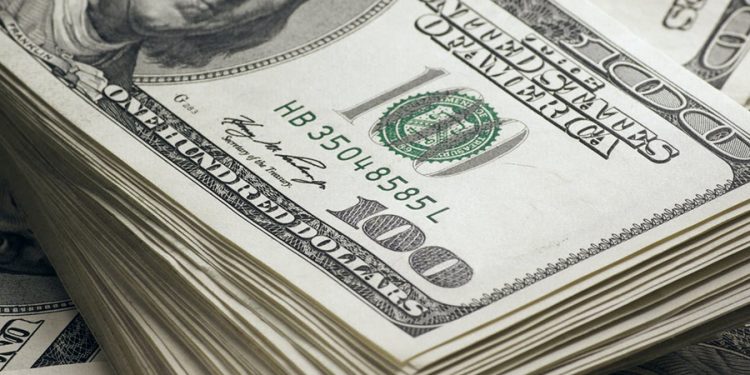Research arm of credit rating agency, Fitch Solutions, says it expects a narrowing of Nigeria’s current account deficit by 0.8 percentage points this year.
The 0.8 percentage points fall in Nigeria’s current account deficit from 3.2 percent in 2020 to 2.4 percent in 2021, the research agency notes is on the back of a robust rise in oil exports.
“We expect the Nigerian current account deficit to narrow from an estimated 3.2% of GDP in 2020 to 2.4% in 2021. This represents a revision from our previous forecast of a 2021 current account deficit of 1.7% of GDP, and follows the publication of Q121 trade data indicating weaker exports, and stronger imports, than we had previously anticipated,” asserts Fitch Solutions.
Adding Nigeria’s current account deficit position is further projected to narrow to 2 percent in 2022 due to the ease of constraints on oil output, thus facilitating a further strengthening of goods exports.
Nigeria – Current Account Balance (2015-2022)

In its assessment of the Nigerian economy, Fitch Solutions posits that rising global demand for commodities will see oil exports from Nigeria increase to 12.6 percent of GDP in 2021 from 6.7 percent of GDP in 2020.
The research agency further asserts that, the value of Nigeria’s oil exports will grow by 57.2 percent on the back of higher oil prices.
“After a weak start, growth in the value oil exports will gather momentum over the coming quarters amid rising global demand for commodities, which will see goods exports rise from an estimated 6.7% of GDP in 2020 to 12.6% in 2021. Our Oil & Gas team expects the value of Nigeria’s oil exports (88.7% of exports in 2020) to grow by 57.2% in 2021.”
“The recovery will be almost entirely the result of higher oil prices – they forecast the average price of Brent crude rising to USD72.0 per barrel (/bbl) as against USD43.2/bbl in 2020 – which will offset the negative impact of continuing production restrictions under OPEC+ and constraints on output caused by aging oil infrastructure and limited investment in new capacity. The global rebound will also cause an uptick in demand for Nigeria’s non-oil exports such as ships and boats (6.2% of exports), grains and fruit (1.0%) and cocoa (1.0%),” notes Fitch Solutions.
Nigeria – Oil Price & Exports (2015-2025)

On the country’s trade deficit, Fitch Solutions intimates that it expects Nigeria’s trade deficit to fall to 1.1 percent this from 3.1 percent last year.
“We expect that rising exports, combined with a relatively modest rebound in imports, will see Nigeria’s trade deficit narrow to 1.1% of GDP in 2021 from an estimated 3.1% in 2020. Demand for imported consumer and capital goods is likely to continue to rise on the back of moderate recoveries in private consumption and fixed investment, which we expect to grow by 1.7% and 2.1% respectively in 2021, and see goods imports rise from an estimated 9.8% of GDP to 13.7% in 2021,” Fitch Solutions stated.
According to Fitch Solutions, it believes Nigeria will be able to finance deficits incurred in its current account and trade.
“We expect that Nigeria will be able to continue financing these deficits. Inflows of both direct and portfolio investment will see the financial account strengthen relative to 2020 levels as sentiment towards EMs improves, the Nigerian government continues to make incremental progress on reforms, and an expected interest rate hike by the Central Bank of Nigeria improves the country’s interest rate differential with developed markets,” concluded Fitch Solutions.
In other developments, Nigerian traders have now been allowed by the Ghanaian authorities to operate in the latter’s retail sector.
This follows an agreement between the two countries after a review of Ghana’s investment act which requires that foreigners invest a minimum of $1 million to be able to operate in the country’s retail space.
Until now, the minimum capital requirement prevented a lot of foreigners particularly Nigerians from plying their trade in the retail sector.
With the law restricting Nigerians from participating in Ghana’s retail space out of the way, more exports – mostly non-oil exports – from the West African country are expected to come into Ghana.
The non-oil exports to Ghana for Nigerian traders will go to further strengthen their current account causing the recorded deficit to decline.








